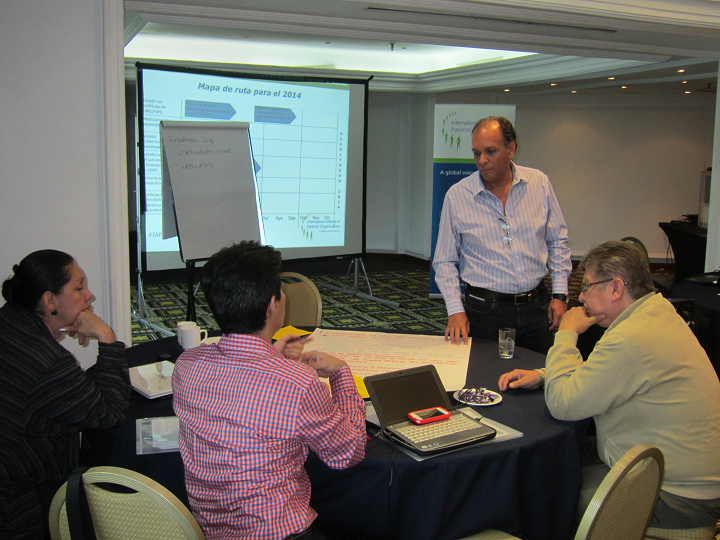The power of telling stories

In December 2015, 34 patients’ groups from across Latin America gathered in Buenos Aires (Argentina) and took part in the Latin American Patient Advocacy Groups’ Summit on Biotherapeutics, sponsored by AbbVie and co-hosted by IAPO and the Global Alliance for Patient Access (GAfPA).
The event aimed to provide participants with the opportunity to increase their awareness and understanding of biosimilar medicines, while discussing specific themes such as medicines procurement, switching and pharmacovigilance.
Brian Kennedy, Executive Director of the Global Alliance for Patient Access, was a speaker at the event and has contributed the following blog post.
Please comment at the end of the blog!
In December...
In December I had the pleasure of participating in the Latin American Patient Summit on Biotherapeutics, where I offered the assembled advocates some unexpected advice: tell stories.
Our discussion revolved around biological medicines – innovative drugs that produce unprecedented results but may also adversely affect patients’ immune systems. Participants were unanimous that regulatory policy for these drugs must protect patient safety. And in their endeavour to encourage safe, science-based regulatory frameworks across Latin America, I explained, patient advocates may want to try educating policymakers through a little storytelling.
Don’t get me wrong. Fact sheets, statistics, data and background materials are a must when patient advocates educate and inform policymakers. But it’s the patient stories that policymakers will remember. Stories can highlight the life-changing benefits of biological medicines. They can also illustrate the need for physicians to be able to quickly, accurately trace side effects back to their source. And stories can delineate why comprehensive testing for each drug and each approved use keeps patients safe.
I told a few stories to the group myself. To illustrate how a relative few can make a big difference when they select the terms of engagement, I recalled the story of David, the Old Testament shepherd boy who defeated the Philistine giant Goliath.
To illustrate the importance of relationships and compelling messages, I drew a contrast between American historical legend Paul Revere and his now-obscure counterpart William Dawes. (Both took to the roadways of Massachusetts one fateful night in 1775 to warn American colonists that British troops approached. Yet only Paul Revere has become a mainstay of American historical lore.)
Patient advocates in Latin America have the chance to weave a narrative of their own. As more biological and biosimilar medications become available, patient groups can educate policymakers across the region, encouraging science-based regulation that promotes rigorous pharmacovigilance and protects patients.
With any luck, theirs will become a story of patients benefiting from the approval and safe use of fully tested, clearly labeled and distinguishably named biological medicines.
Image credit: the Global Alliance of Patient Access.



